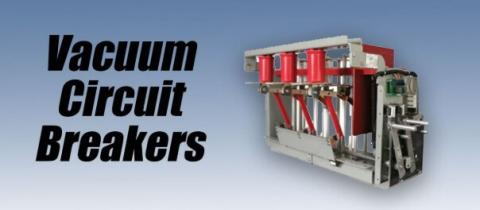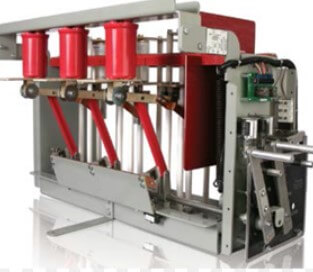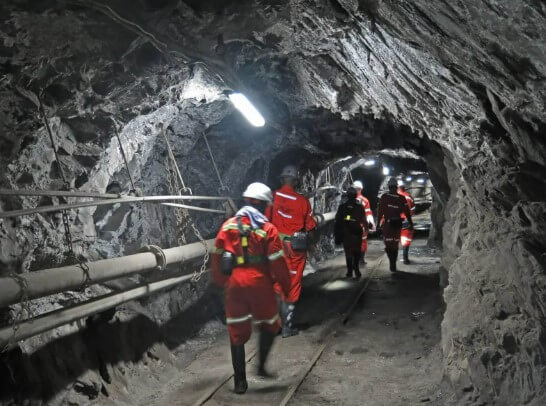
Mining is unforgiving on electrical equipment. Dust, moisture, temperature swings, vibration, and heavy mechanical shock are daily realities in both underground and open-pit operations. When selecting switchgear for feeders, ring-main units, mobile substations, or distribution panels, the right interrupter technology makes a direct impact on safety, uptime, and lifecycle cost. Vacuum circuit breakers (VCBs) are a go-to choice for many mines because of their compactness, high interruption performance, and comparatively low maintenance. But what defines the Best Vacuum Circuit Breaker for mining? This article breaks down the technical and practical factors to help mining engineers and operations managers build confidence.
Why vacuum circuit breakers are a strong fit for mining
Vacuum interrupters extinguish arcs in a sealed vacuum chamber when contacts separate. That core technology brings several advantages for mining applications:
- Fast dielectric recovery and reliable interruption — A vacuum regains dielectric strength quickly after the arc is gone, enabling dependable fault interruption even under heavy prospective currents.
- Low maintenance and long contact life — No gases to refill and no oil to leak. Modern vacuum interrupters have low erosion rates and consistent performance over many cycles.
- Compact size and modularity — Space constraints are common in underground substations and skid-mounted mobile units; VCBs pack high performance into a small footprint.
- Environmentally safer — Vacuum breakers don’t use SF6 or oil, avoiding those environmental and disposal issues.
- Good for frequent switching — For circuits that see regular switching or motor starting, VCBs handle many operations with predictable wear characteristics.
These benefits make vacuum circuit breakers especially attractive where reliability, safety and reduced onsite servicing are priorities.

GET IN TOUCH
In a hurry? Call us at 276-285-3841
Core attributes of the Best Vacuum Circuit Breaker for mining
There is no single model that is universally “the best” for every mine — the right choice depends on system voltage, fault levels, installation environment, and maintenance resources. Still, the best VCBs for mining typically share these core attributes:
- Adequate breaking capacity with a margin
Select a breaker whose short-circuit interrupting rating comfortably exceeds your highest prospective fault current. A healthy margin reduces the risk of breaker damage and secondary equipment failures.
- Rugged mechanical construction
Mining adds vibration, dust and mechanical stress. Look for robust enclosures (appropriate IP rating), anti-vibration design, and durable mechanical linkages that resist misalignment after repeated operations.
- Proven vacuum interrupter technology
Not all vacuum interrupters are equal. Choose interrupter modules from reputable manufacturers with a track record in heavy industries. Low-wear contact metallurgy and proven vacuum seals extend life and reduce replacements.
- Ease of maintenance and field serviceability
The best VCBs let technicians access and replace vacuum cartridges, coils, and control modules without cutting complex buswork or requiring specialist tools. Local availability of spares is also critical.
- Protection and communications compatibility
Modern mine power networks often use digital relays, automation and SCADA integration. A VCB that provides clean auxiliary contacts, metering/transducer options and standard communications interfaces simplifies integration.
- Environmental adaptations
Underground installations benefit from anti-corrosion coatings, condensation control (heaters/desiccants) and sealed enclosures. Surface installations may need UV- and salt-spray resistance and broader operating temperature ranges.
- Field-proven safety features
Clear visible open indicators, interlocks, local manual operation options and reliable trip mechanisms are essential for safe lockout/tagout and maintenance procedures.
Practical selection checklist
When evaluating candidates for the Best Vacuum Circuit Breaker for your mine, run through this checklist:
- Do the rated voltage (kV) and continuous current match the system?
- Is the short-circuit breaking capacity >= prospective fault current + safety margin?
- Does the mechanical endurance rating match the expected switching frequency?
- Are IP, corrosion protection, and environmental options suitable for underground/open-pit conditions?
- Are vacuum cartridges and spare parts locally available?
- Does the supplier have mining references or installations in similar heavy industries?
- Is the breaker compatible with existing relays, SCADA, and remote trip/close schemes?
- Does the supplier provide commissioning, on-site training, and responsive after-sales support?
Installation and maintenance realities
Even the best VCB will underperform if installed or maintained poorly. Key practical points:
- Ensure correct grounding, clearances, and mounting according to standards and vendor guidance.
- Use anti-vibration mounting for mobile units and equipment in high-shock zones.
- Keep switchgear rooms reasonably clean; provide dust control and positive ventilation where possible.
- Implement a simple predictive maintenance plan: measure contact resistance periodically, monitor auxiliary coil currents, log operations and test tripping performance.
- Train local technicians on field replacement of vacuum cartridges and basic diagnostics; reducing reliance on external specialists lowers overall downtime.

GET IN TOUCH
In a hurry? Call us at 276-285-3841
Safety, standards, and lifecycle cost
Select breakers that meet relevant international standards (IEC/IEEE) and any local regulatory requirements for mining installations. When evaluating proposals, consider the total cost of ownership, not just upfront price: spares availability, expected maintenance labor, downtime risk, and environmental compliance costs all affect lifecycle economics. A slightly higher CAPEX for a robust, serviceable VCB can yield lower OPEX over the asset life — a critical consideration in high-cost mining downtime scenarios.
Conclusion
At Becker Mining USA, we’ve learned that the Best Vacuum Circuit Breaker is the one chosen after careful systems engineering — matching interrupting ratings to fault studies, specifying environmental options for site conditions, and planning for field support and spare parts. Vacuum breakers offer an excellent combination of size, safety, and reliability for mining switchgear, but their long-term value depends on correct selection, installation, and maintenance.
If you’d like a tailored recommendation for your mine — whether it’s underground distribution, open-pit feeders, or mobile substation applications — our team can review your single-line diagram, prospective fault currents, and environmental factors to recommend the right vacuum circuit breaker and support package for your operation.
Products We Offer:
- Explosion Proof Equipment
- Transformers
- Arc Guard
- Longwall Electrical Systems
- Capacitor Trip Devices
- Electrical Equipments like capacitor banks, switch houses, junctions, and splice boxes.
Power up your productivity with Becker Mining's ground fault relays - the reliable and efficient solution for all your power distribution needs. Call us today!